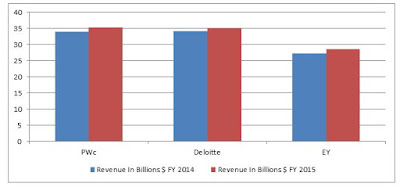ISA 570
requires an auditor to obtain and evaluate management’s assessment of the
entity’s ability to continue as a going concern.
Issues to
consider by the auditor while evaluating the going concern assumption by
management are as follows.
Are any events or
conditions which may cast significant doubt on the entity’s ability to continue
as a going concern has been identified? Examples
of conditions and events can be traced from paragraphs A2 of ISA 570.
Based on our inquiries of
management and our review of their assessment, were any events or conditions
noted that may occur shortly beyond the management assessment that were so
significant that they may cast doubt on the entity’s ability to continue as a
going concern?
If
audit team answer to the above two questions is “NO” then the evaluation is
complete but if the answer is “YES” then the following additional audit
procedures need to be undertaken.
Evaluate management’s plans
for future actions in relation to its going concern assessment, whether the
outcome of these plans is likely to improve the situation and whether
management’s plans are feasible in the circumstances.
Stated plans: Obtain and discuss with management its
plans to deal with the identified risks. Indicate the individuals interviewed.
Supporting
evidence overcoming substantial doubt: Indicate below the elements of
management's plans that are particularly significant to overcoming the
substantial doubt about the entity’s ability to continue as a going concern.
Examine and describe evidence that supports those elements. Elements include
Third-party guarantee, Debt restructuring or new borrowings, Liquidation of
assets, Reduction or delay of expenditures, Increase in revenues, Increase in
equity etc.
Third
party guarantees and other financial restructuring agreements: If there are significant
guarantees of financial support from a third party (such as the entity’s parent
company, another shareholder, an affiliate or a general partner of a limited
partnership):
Prospective
financial information:
Although
this information is not as persuasive as evidence provided by third parties, we
usually consider it as necessary to support management's plans.
Management's
representation:
Obtain
written representation from management and where appropriate from those charged
with governance regarding management's plans and conclusion about the
appropriateness of the going concern assumption and the reasonableness of
related disclosures in the financial statements.
Practice
Based on the audit evidence
obtained, conclude whether a material uncertainty exists relating to events or
conditions, that individually or collectively, and may cast significant doubt
on the entity's ability to continue as a going concern. A material uncertainty
exists when the magnitude of its potential impact and likelihood of occurrence
is such that, in our judgment, appropriate disclosure of the nature and implications
of the uncertainty is necessary for the fair presentation of the financial
statements.
Other articles on related topic:








